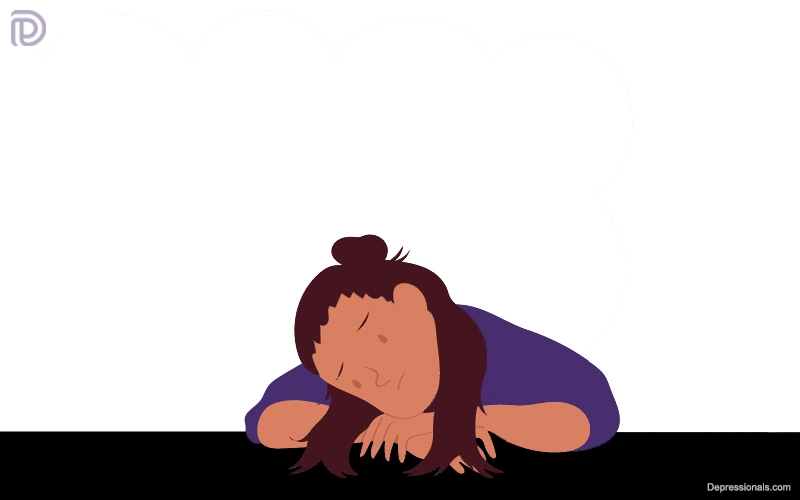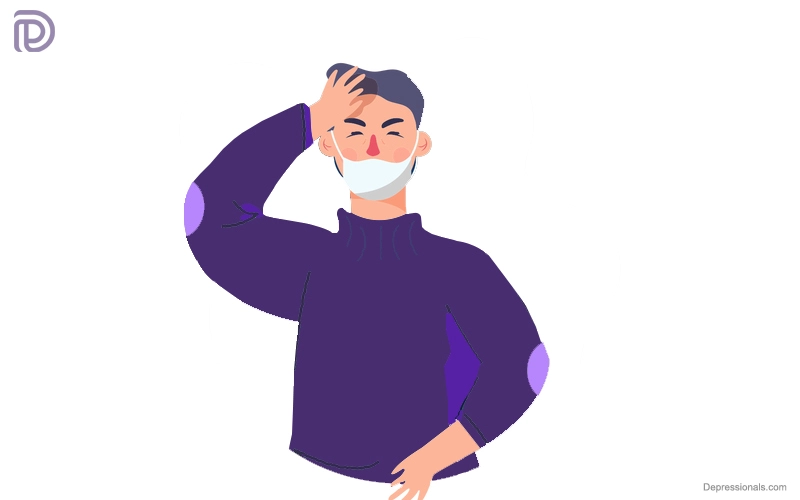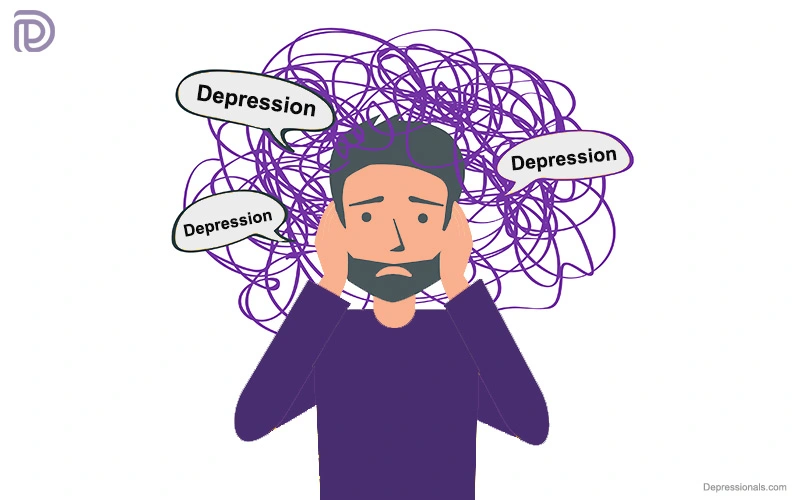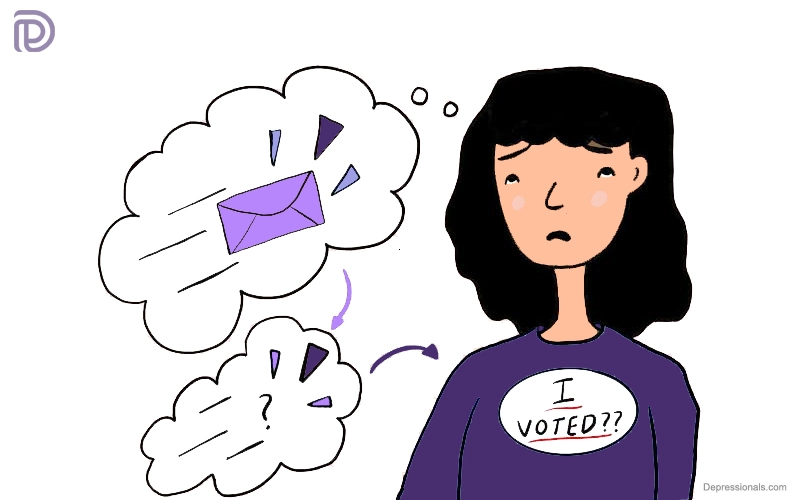It is hard to get out of a depressive episode. A major depressive episode lasts for at least 2 weeks and is characterized by low mood and other depression symptoms. If a person is experiencing a depressive episode, he or she can try to improve their mood by changing their thoughts and behaviors.
Depressive episodes can last for several weeks or months. Occasionally, depressive episodes can last longer than a year.
According to the Anxiety and Depression Association of America (ADAA), approximately 16.1 million Americans had at least one episode of major depression in 2015.
Check out our article to learn more about triggers of depression and 12 tips to deal with the condition.
Read: How to Deal with Teenage Depression
Possible triggers
There are many causes of depression, including biological, psychological and social factors. People may be more prone to depression than others, but they usually suffer from depression only when triggered by a stressful event.
There are several possible triggers, including:
- Routine changes
- Disrupted sleep
- Poor eating habits
- Stress at work, school or home
- Feeling alone, unloved, or isolated
- Abuse and mistreatment
- Medical problems such as Alzheimer’s, strokes, or erectile dysfunction
- Some medications, such as antibiotics and blood pressure medications
- Significant life events, such as divorce or bereavement
- Traumatic experiences, such as car accidents or sexual assaults
Related: How to Stop a Panic Attack
Twelve tips to get out of a depressive episode
Patients are more likely to recover faster if they are treated for depression as soon as symptoms appear. Depression can be improved by making changes to how you think and behave, even if you have had it for a long time.
People experiencing a depressive episode may benefit from the following tips:
1. Track triggers and symptoms
A person might be able to better understand what triggers a depressive episode by tracking their moods and symptoms. It is possible to prevent a full-blown depressive episode by recognizing the signs of depression early on.
Keeping a diary will help you to track important events, changes in your day-to-day routine, and moods. You can identify which activities or events cause-specific moods by rating them on a scale of 1 to 10. If symptoms persist for more than a week, speak to your doctor.
2. Stay calm
Knowing when depression is about to start can be frightening. It is understandable to feel panicked or anxious when experiencing the first signs of depression. However, these reactions can lower mood and exacerbate other symptoms, such as an inability to sleep and a loss of appetite.
Stay calm instead. Feelings of depression are temporary and can be treated.
Depressive episodes can be overcome by anyone who has experienced them before. Individual must focus on their talents and the lessons they have learned from their previous depressive episodes.
Meditation, mindfulness, and breathing exercises can promote emotional well-being and promote a sense of calm by teaching a person how to look at problems differently. You can find self-help books and take counseling courses over the phone or online.
Read: Situational Depression
3. Accept and understand depression
People can gain a better understanding of depression by learning more about it. Depression is a prevalent and serious mental health problem. Sufferers are not weak or failures.
A person might be better able to deal with a depressive episode when it occurs if they accept that it can happen occasionally. If you adjust your lifestyle, take medication, or undergo therapy, it is possible to manage symptoms.
4. Refrain from being affected by depression
People are not defined by their conditions; their illnesses are not who they are. Many people find it helpful to repeat to themselves when they first experience depression symptoms: “I am not depressed, I have depression.”
It is important to remember all the other aspects of one’s personality. Additionally, they can be your parent, your sibling, your friend, your spouse, your neighbor, or even your colleague. We all possess unique qualities, strengths, and abilities that make us unique.
5. Take care of yourself
The importance of self-care cannot be overstated. This refers to any activity that helps individuals maintain their well-being.
You should take time to relax, recharge, and make connections with others and with yourself. You should also say no to others when you are overwhelmed and take time to calm your mind and soothe yourself.
Self-care involves eating a healthy diet, participating in creative activities, and taking a soothing bath. It is possible, however, to consider any action that improves mental, emotional, and physical health as self-care.
Read: Teen Depression
6. Relax your muscles and breathe deeply
Breathing techniques can be beneficial for calming anxiety and soothing the body’s stress response. Slowly breathing in and out can be beneficial to your physical and psychological well-being.
Practicing deep breathing can be done anywhere, whether in a car, at work, or at the grocery store. Many smartphone apps can guide you through guided deep breathing exercises for free.
Patients suffering from depression and anxiety may also find progressive muscle relaxation helpful. The muscles in the body are tensed and relaxed in an effort to reduce stress. There are a number of apps that guide you through progressive muscle relaxation.
7. Overcome negative thoughts
Depression and other mood disorders can be effectively treated with cognitive-behavioral therapy (CBT). According to CBT, a person’s mood is determined by their thoughts, rather than their situation in life.
CBT aims to modify feelings and behaviors by changing negative thoughts into more balanced ones. The technique of cognitive-behavioral therapy (CBT) can be provided by a certified therapist, but challenging negative thoughts can also be done on one’s own.
Notice how many negative thoughts you have and what you say to them. There are several possible reasons for this, including “I am not good enough” or “I failed”. Replace negative statements with more positive ones, such as “I did my best” and “I am enough.”
Read: Tobacco Use Disorder
8. Practice mindfulness
Taking some time to be mindful every day can help you appreciate the present moment. It could be noticing how the sun feels on the skin while you walk to work, or tasting and feeling a crisp, sweet apple at lunch.
People who are mindful can fully enjoy the moment they are in, instead of dwelling on the past or worrying about the future.
There is evidence that regular periods of mindfulness can help those with chronic or recurrent depression to cope better with low moods and reduce symptoms of depression.
9. Create a bedtime routine
The quality of sleep can greatly affect one’s mood and mental health. Sleep deprivation can contribute to depression, while depression can cause sleep problems. You can prevent these effects by going to bed and waking up at the same time every day, even on weekends.
Make sure to follow the same routine every night. Wind down by 8 p.m. Take a warm bath, read a book, or drink chamomile tea. Don’t watch TV or use caffeine. Those whose racing thoughts keep them awake may also benefit from writing in a journal before bed.
10. Exercise
People with depression benefit greatly from exercise. When people exercise, chemicals called endorphins are released which improve their mood. Exercise has a “large and significant effect” on depressive symptoms, according to a study analyzing 25 studies on exercise and depression.
Check all: Mental Help Resources
11. Avoid alcohol
Alcohol exacerbates depression or triggers it, as it is a depressant. Some depression medicines can also be affected by alcohol.
12. Record the positives
Many people suffering from depressive episodes focus on the negatives and ignore the positives. Keeping a journal of positivity and gratitude can help counteract this tendency. Journals of this type can help build self-esteem.
Make a list of three good things you did today before you go to bed. Taking regular walks, meditating regularly, eating a nutritious meal, and many others are all positives.
It is psychologically beneficial to breathe slowly and exhale slowly.






Hi my family member! I want to say that this article is amazing, great written and include approximately all important infos. I would like to see extra posts like this .
Utterly written articles, thank you for information. “In the fight between you and the world, back the world.” by Frank Zappa.